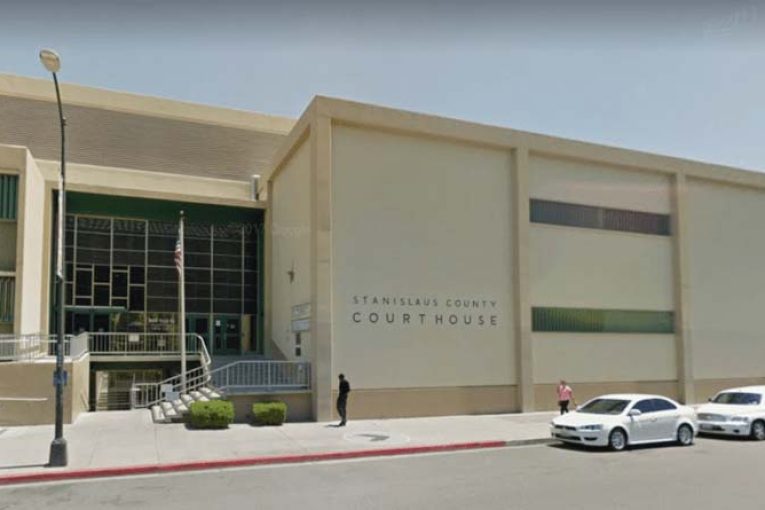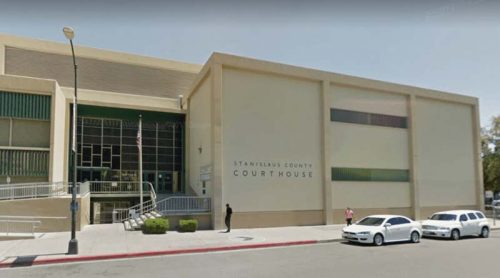

By Michael Apfel
MODESTO, CA – Following a preliminary examination in Stanislaus County Superior Court this week, Judge Shawn Bessey found there was insufficient evidence to move forward to trial in a felony marijuana sales case for the accused.
The Deputy District Attorney began the examination by calling Evan Swearingen to the witness stand, a police officer with the Modesto Police Department.
Swearingen said on Sept. 24 of this year he assisted in a search warrant for an alleged marijuana cultivation sales investigation at 617 Park Hurst Drive. Swearingen testified other officers informed him they saw the accused at the front of the residence in a black sedan later searched by law enforcement.
The officer said multiple United States Postal Service receipts were retrieved showing parcels had been shipped to several post offices at different locations in Oklahoma, and later, the parcels were opened and contained packages of marijuana, totaling at 32 pounds.
The parcels, he added, were intercepted by postal inspectors and were delivered to the Modesto Police Department. At this time, the parcels were searched and processed by the police department.
On cross-examination, private defense attorney Preciliano Martinez pointed out 617 Hurst Drive was not the accused’s home address, and maintained there was only circumstantial evidence tying the receipts to the accused.
After the examination concluded, the accused argued to the court the circumstantial evidence presented by the prosecution was not convincing enough to bring the case to trial, although usually it’s a very low bar to move most cases to trial.
“Based on the testimony that has been provided in court here today, there is no evidence that the accused was actually transporting any marijuana in or out of the state,” said Martinez.
The prosecution argued the evidence was strong enough, but Judge Bessey interjected after the search warrant was referenced as evidence of guilt.
“That’s not evidence,” said Judge Bessey. “You can’t bring in a search warrant for evidence of some crime. You found the slips, and then you (went) from there. What else is happening?”
The DDA argued the receipts found were recovered in the vehicle the accused was in, but this was not enough to convince the judge.
“I found there was sufficient evidence that [the accused] had possession of these receipts, and therefore you could get to the inference that he was the one that sent the packages to Oklahoma. Certainly, there’s 32 pounds of marijuana,” said the judge.
But, he added, the prosecution “needs to have something to prove in the hearing stage that this amount is for sales. I don’t think anybody would give away 32 pounds of marijuana, but you’ve got to have something. You can’t just say that because marijuana went from A to B… and get over the elements.”
The judge ended the proceeding by releasing the accused and informing him that he may be rearrested in a future date if other evidence were to come to light.